In today’s job market, you almost never hear anything positive. It’s rarely “I just got my first full-time job!” or ‘My new degree helped me secure a full-time job.’ Due to a rocky American economy, it’s much more common for freshly graduated college students to sink back into the part-time jobs they held during their university or even high school years. And because these graduates not only have experience but also degrees on their resumes, they are way more likely to secure these positions than teenagers who don’t have the advantage of experience or ‘knowing someone’ who works in the part-time food or retail industry.
And this isn’t to blame these graduates. It’s extremely frustrating that after spending massive amounts of time and money working towards a degree, they struggle to secure jobs that will compensate them for their personal and financial investment. In order to keep the lights on and put food on the table, these new members of society must find work somehow, and these part-time roles are there for them when the full-time roles are not.
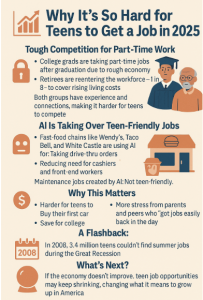
And this isn’t a new phenomenon. According to the Bureau of Labor Statistics, 3.4 million youth were struggling to find summer jobs in 2008. And this was largely due to the awful economy of that time and the Great Recession.
It’s also not just college graduates who are filling up these positions. It’s also senior citizens who are forced to come out of retirement due to financial difficulties that a downturned economy brings. According to a survey done by Resume Builder, one in eight retirees is reentering the job market. This is largely due to the high costs of living that eat up retirement savings.
And many of these retirees often opt for part-time jobs, as they are easier to obtain for people with work experience, and require less of a time commitment. Because these retirees have nearly a lifetime of work experience and are considered more reliable than teenagers, they also gain the upper hand in the hiring pool, lowering the average high schooler’s chance of securing a job even more.
One can also not deny that the incorporation of AI technology into the workplace is eliminating part-time jobs that could’ve potentially gone to teenagers. Fast food restaurants such as Wendy’s, Taco Bell, and White Castle are experimenting with AI-powered machines that work drive-throughs. Typically, they take orders and send them to the kitchen for preparation. One may argue that this technology creates new jobs to perform maintenance on these machines. However, these jobs are certainly not available to high school students. There’s also the argument that this just creates more demand for jobs in the kitchen. However, once again, these line cook positions are likely not going to go to teen workers, as they may require the usage of certain appliances that people under 18 are not approved to operate in certain states.
This is an issue for many reasons. Teenagers have a more difficult time earning money that they may put towards major life milestones, like buying their first car or attending college. Instead, today’s high schoolers may not be as eager to get their license because they know they won’t have a car to drive, or will be discouraged from college because of the massive debt that won’t be even slightly relieved by a minimum wage salary. They may also face judgment from their parents or peers who either secured their first jobs during a time when getting hired for these roles wasn’t as difficult or had a connection to someone who works in a part-time establishment.
As a chaotic economy continues to wreak havoc on Americans and force them into part-time roles, more and more teenagers will be denied the opportunity to work their first job. For a high schooler, it’s very important to fit into a mold they think they are required to fill, or they need the money that these opportunities provide, for college or other important expenses. If the economy continues to decline, one can only expect that the teen job market will suffer, and with it, the American teen experience.



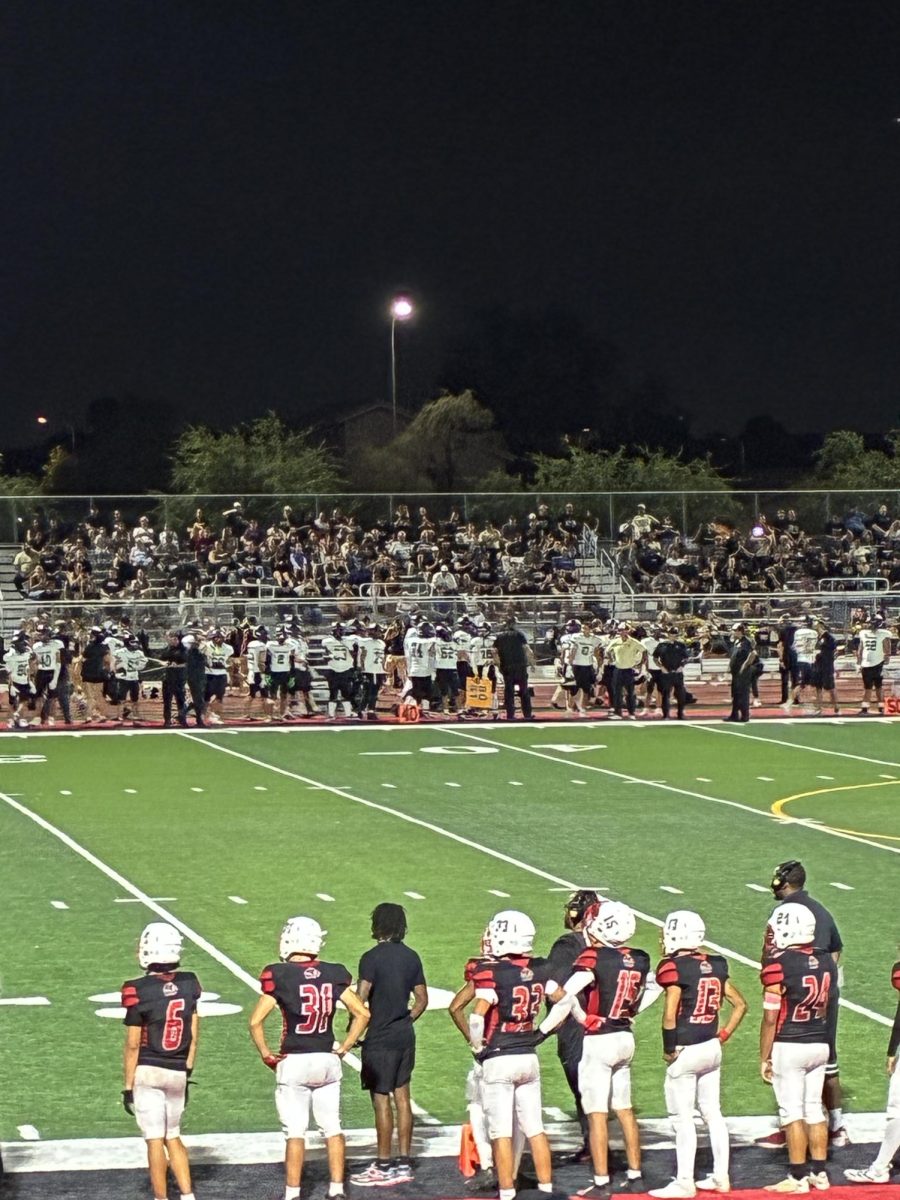
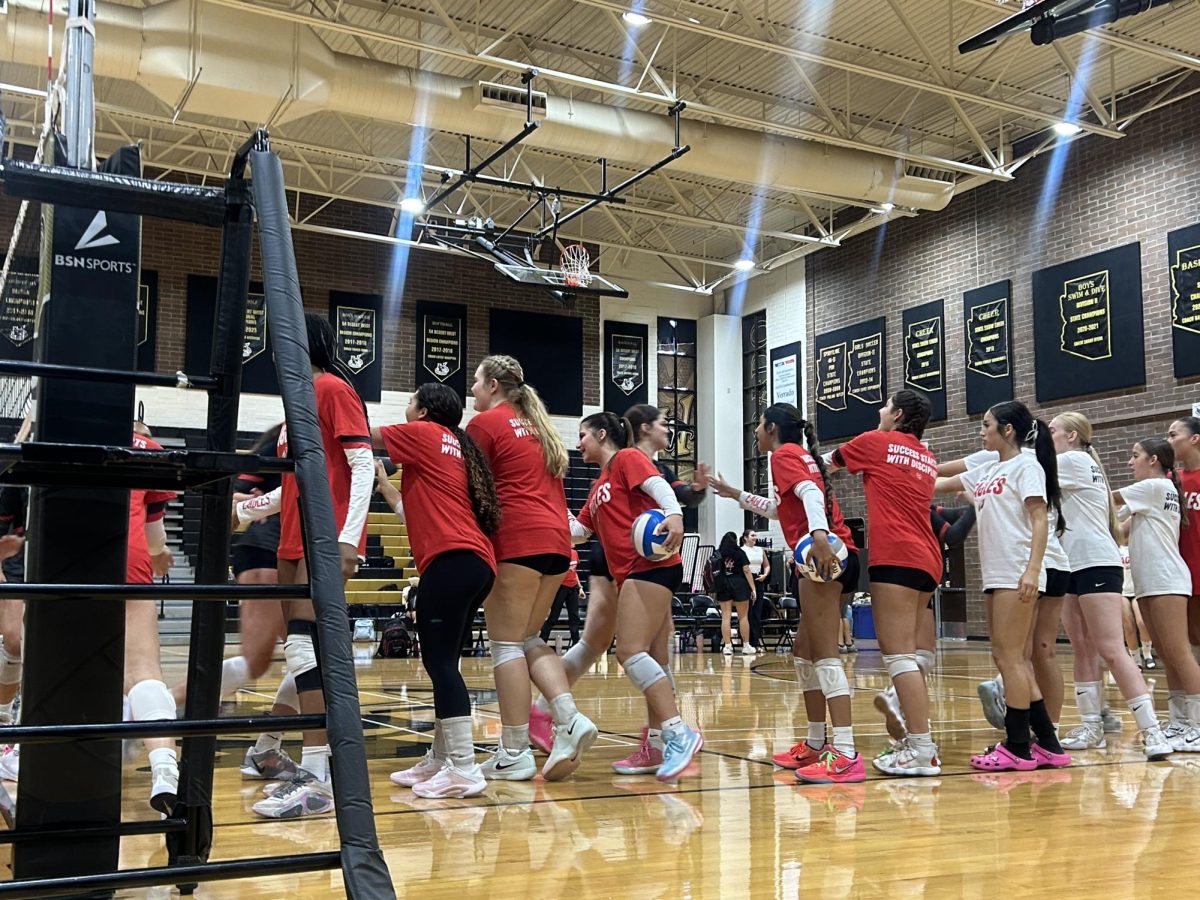







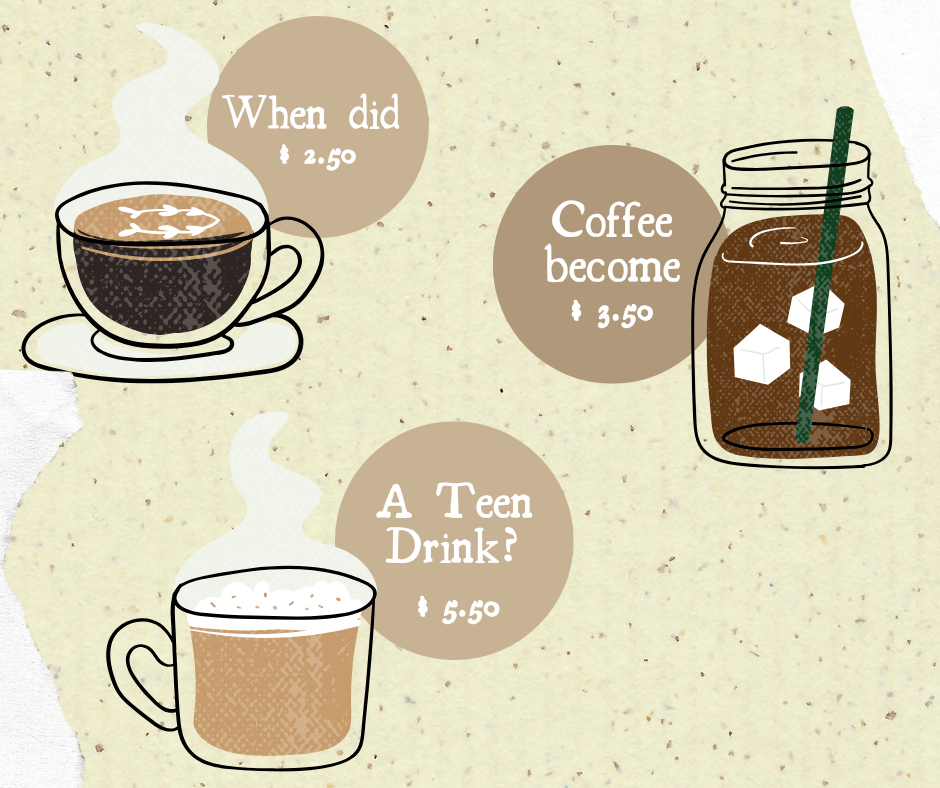
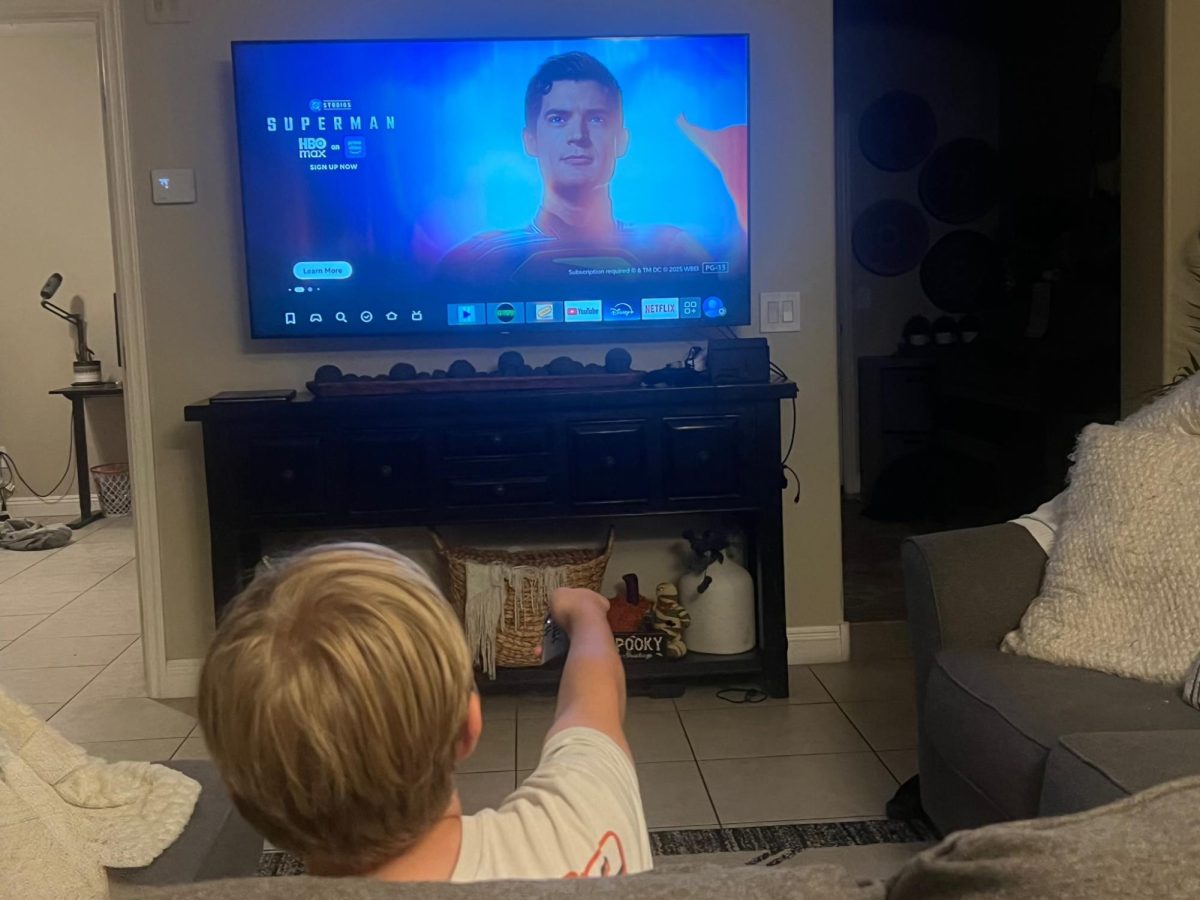





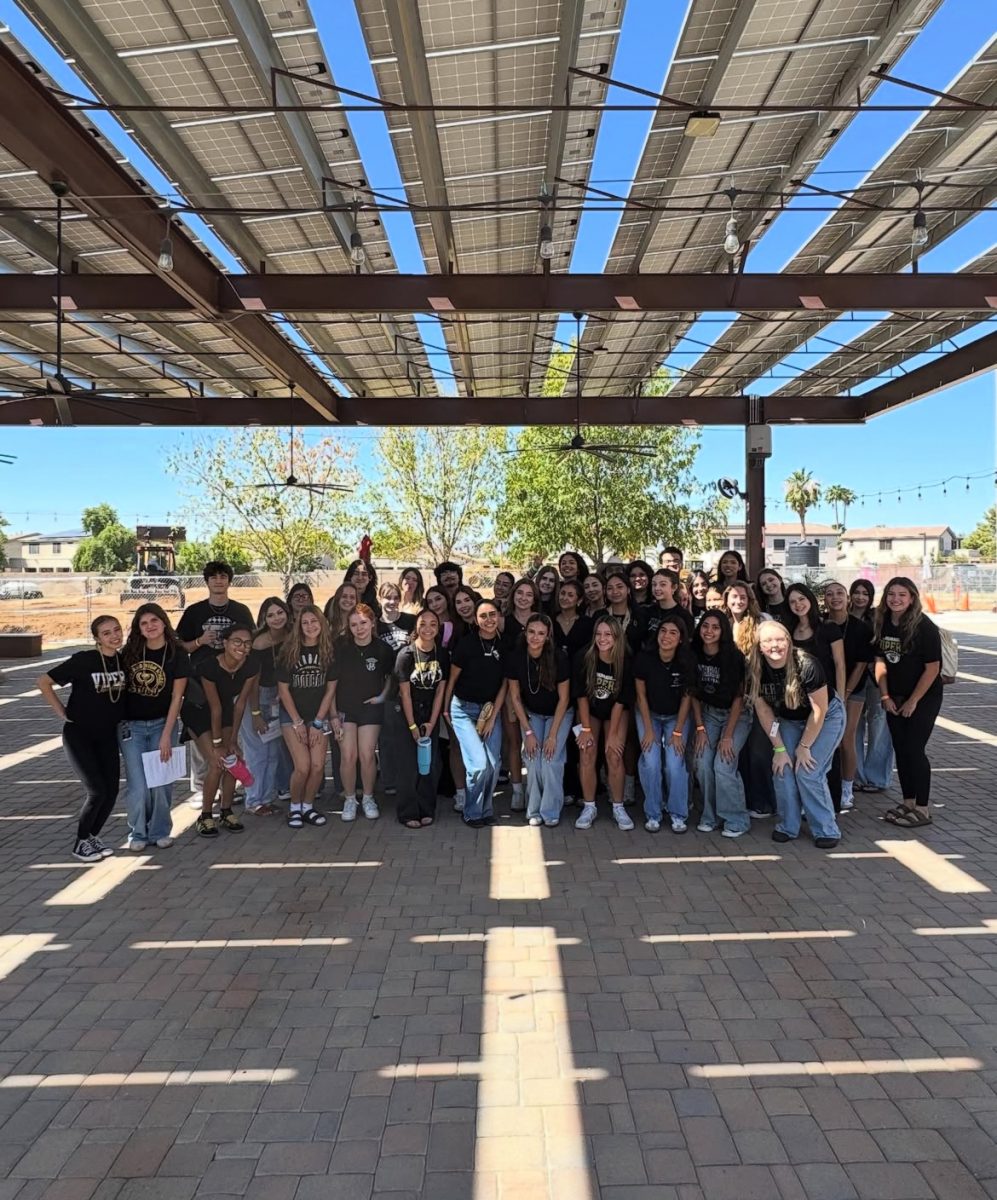
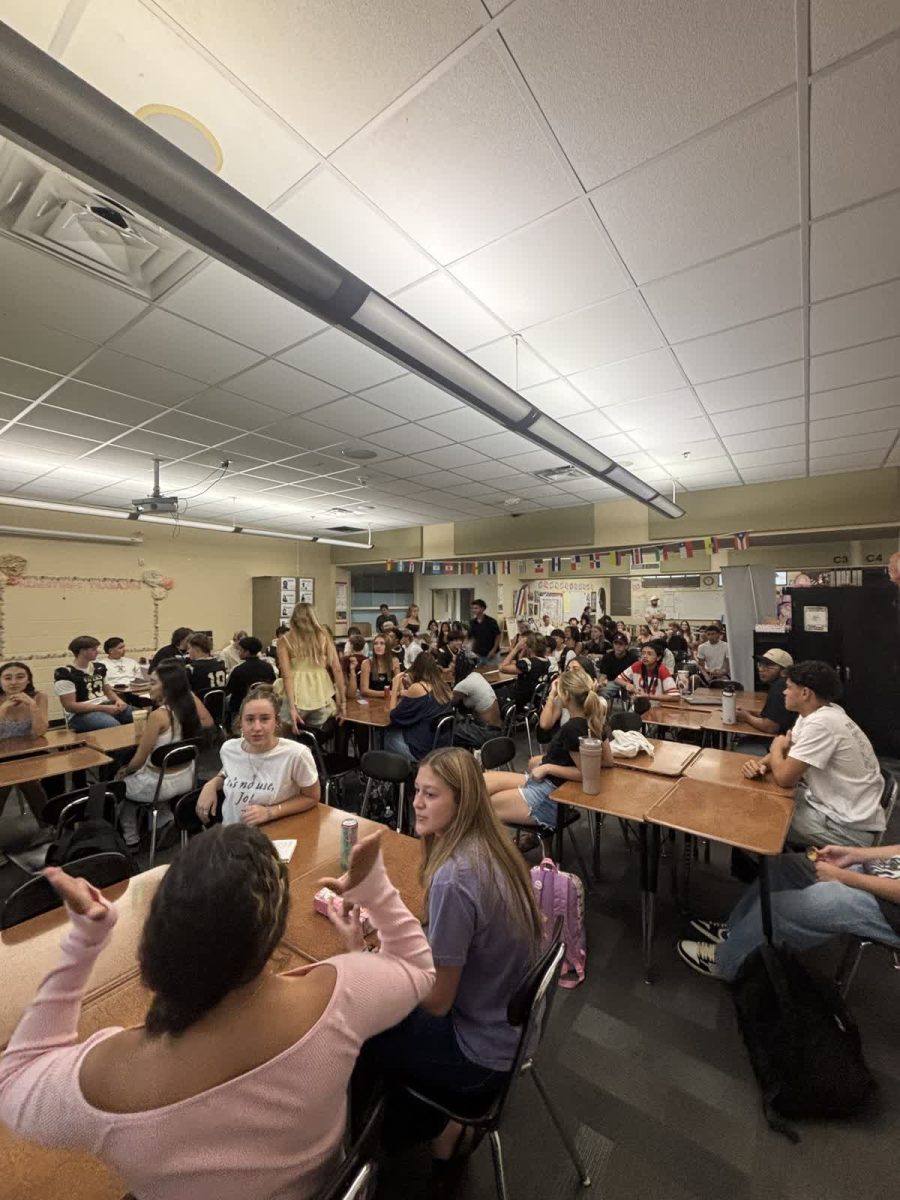








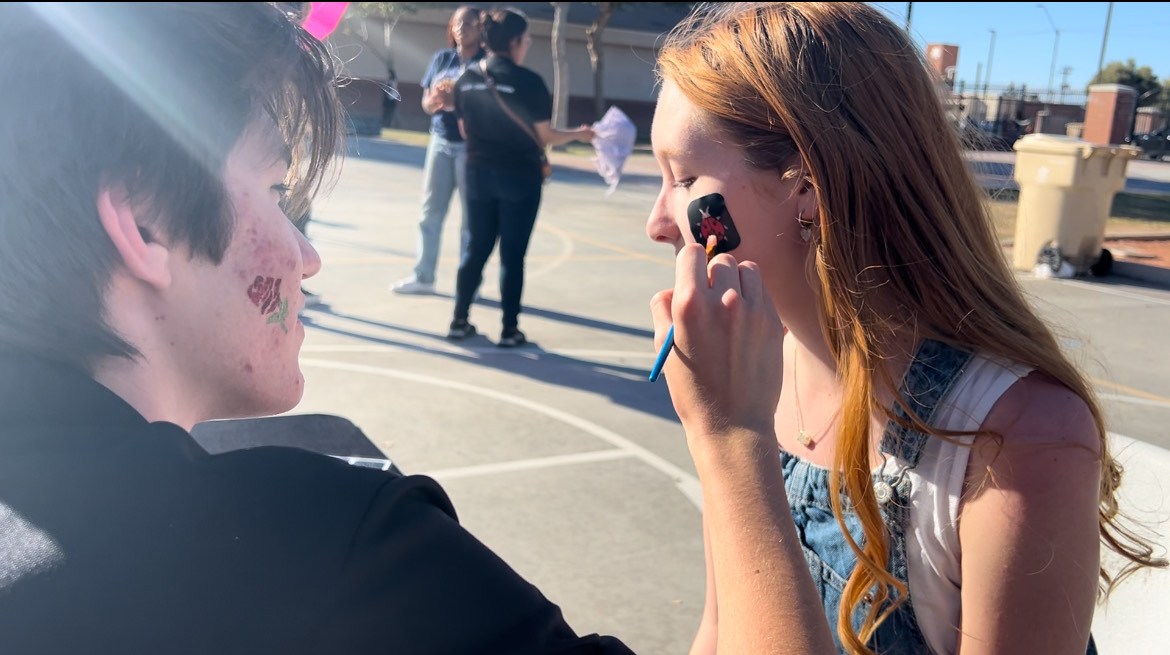
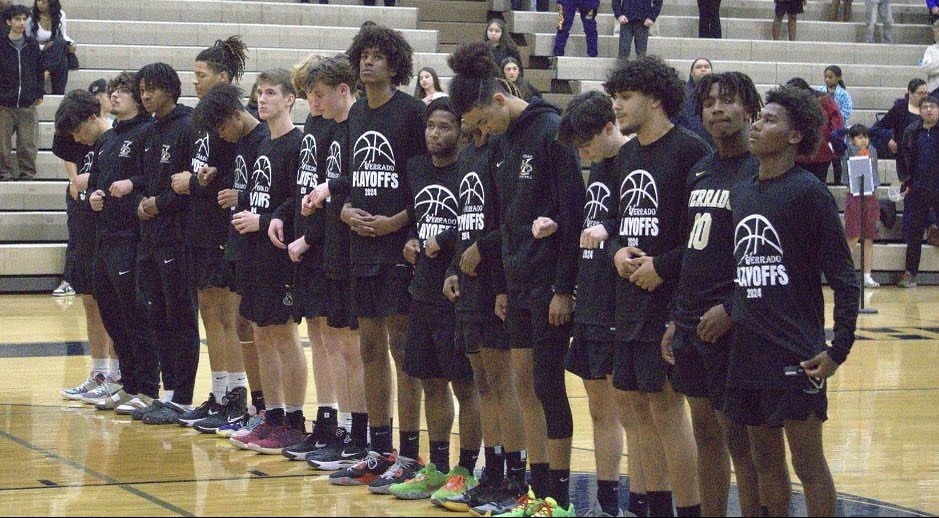

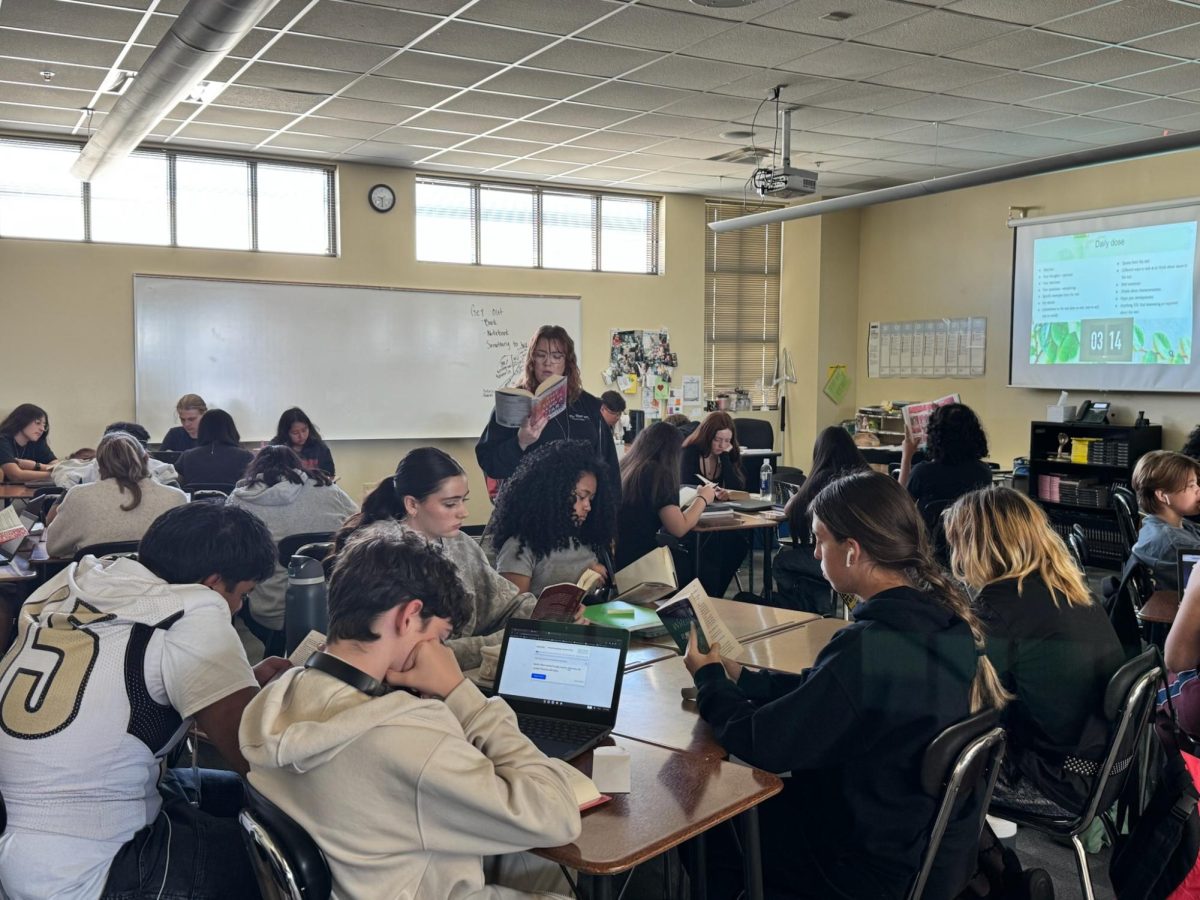

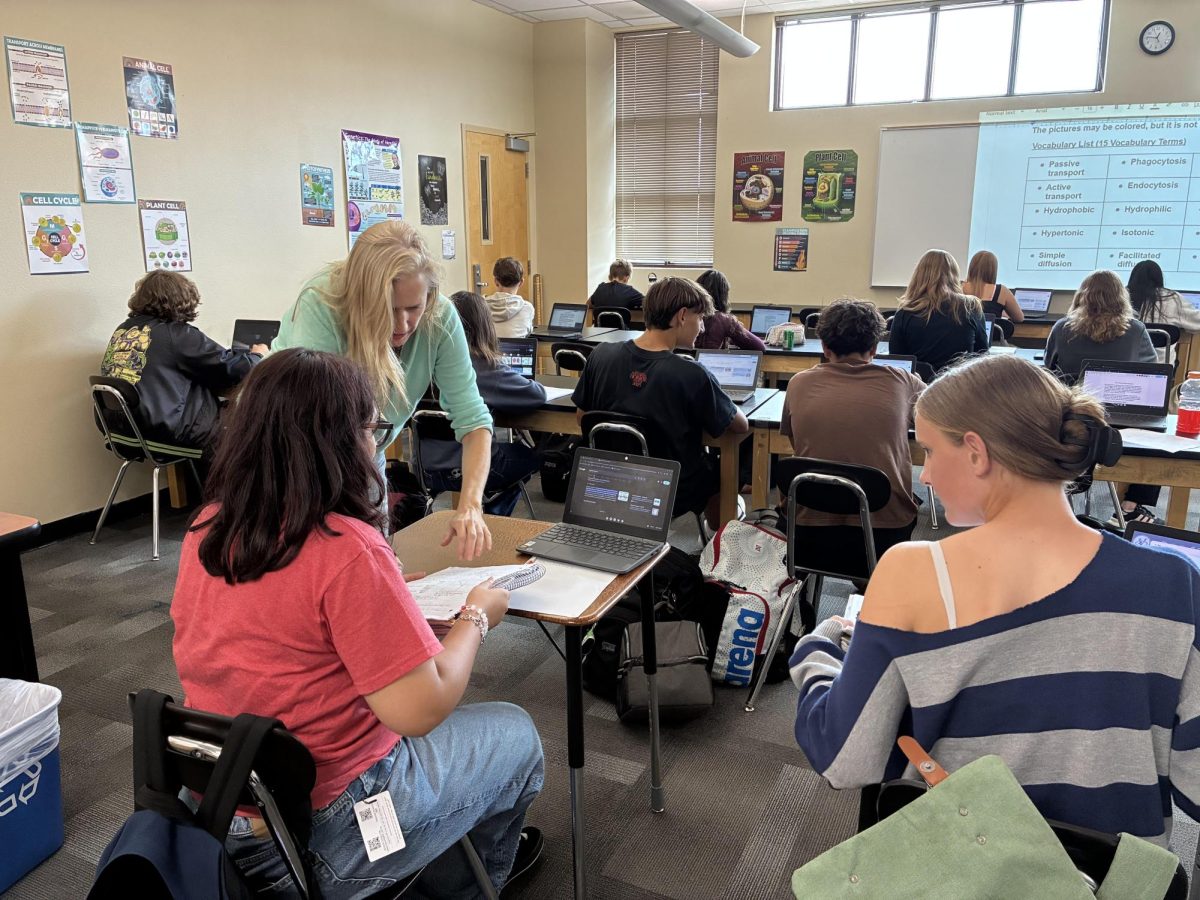


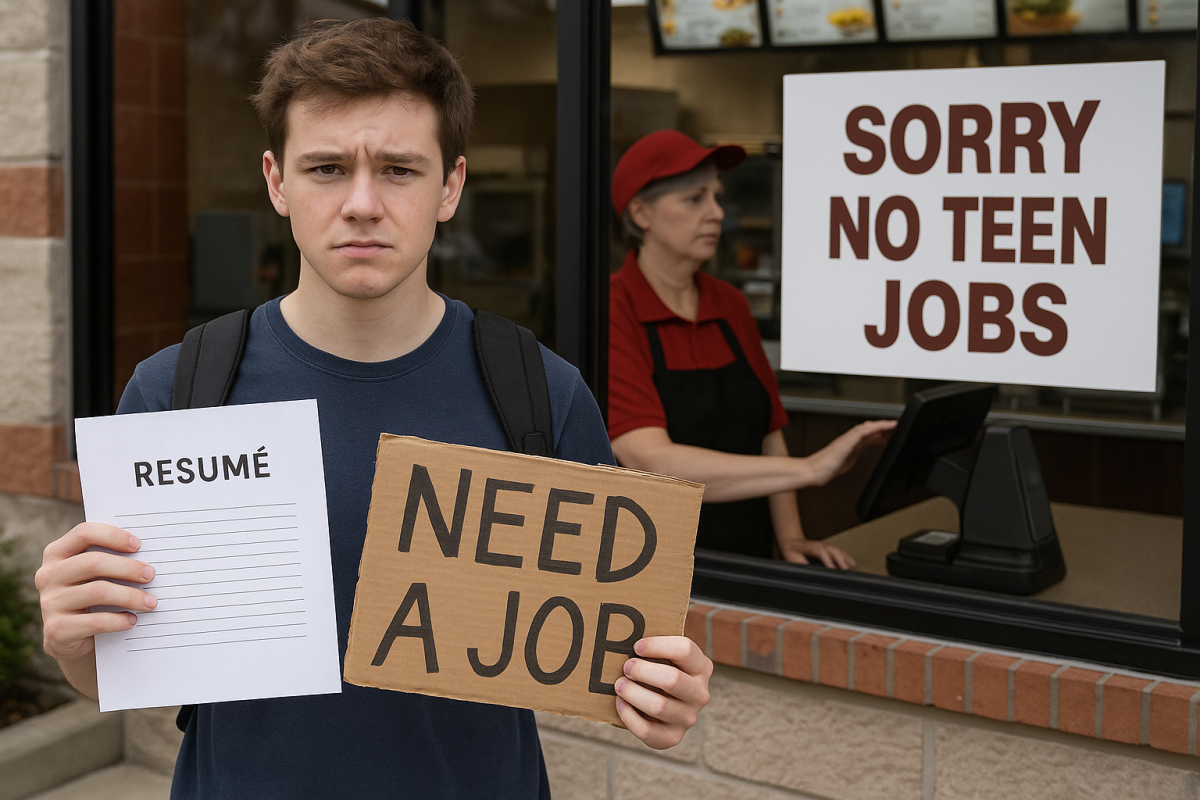
Cayden • Aug 28, 2025 at 8:17 AM
Yeah, me and a friend of mine went in-person to 36 different stores (of varying business styles), applied to about half of them, only heard back from a quarter of those, and only managed to secure 1 or 2 interviews each, which we got rejected promptly afterwards. I do hope the situation changes in due time, and it’s especially a struggle because nobody at the age of parents or guardians quite understands the struggle. Oh well, what can we do but wait and see what happens?
Joseph Lopez • Aug 15, 2025 at 10:30 AM
This relates to many people and their struggles of getting a job as a teen, something that most high school students can relate to, since almost everyone here has tried to apply for a job, and it’s most likely to end in rejection before a person even gets their application formally reviewed. What’s not helping is the fact that everything is getting more expensive, making it even harder for high school students to afford a vehicle to get there. This article does a great job of highlighting these issues.
Jose • Aug 15, 2025 at 10:26 AM
This article is really interesting because it really explains the fact that it is way harder for teens to find jobs nowadays. This summer I had a similar situation, because I tried to get a summer job at a fast food but they declined me because they said they no longer had any positions. A few days later I passed by to grab some food but there were no people at the front but there were 4 screens to order on.
Cory Davis Jr • Aug 15, 2025 at 10:24 AM
As a teen who wants to get a job that I can work during the week instead of the weekend it’s very challenging. I work once or twice a week for my grandpa’s company. I can only work Saturdays and Sundays because the job requires me to wake up at 2:30 am and head to work till 2 pm. So because of this I want to get a job I can work after school but it’s so hard to get a job to take me because of the more recent AI use and because of the demand of teens wanting/getting jobs. So I agree with this article.
Harrison • Aug 15, 2025 at 10:23 AM
I like and relate to this article from personal experience. I have applied to so many jobs and it always turns out to be a no. It’s concerning to see that not only the people my age but that come after me will struggle because of this. I also have so many friends that agree with me because they go through the same things. Hopefully in the near future things will change so more jobs open and teens can get jobs.
grace • Aug 15, 2025 at 8:54 AM
When I was 16, I applied to my first job in November and got accepted quickly. I would say applying for a job and actually getting it really does depend on the time you apply, at least in the food industry.
Blake Linkey • Aug 15, 2025 at 8:50 AM
I haven’t started applying to jobs just yet but I have a few options in mind. It sucked to know that a lot of teens my age have been struggling a lot and working hard and spending mass amounts of money to get a job but get nothing out of it even if they have a degree. I really like how this article goes into depth about how teens have a hard time in modern day life with AI that’s now in the picture that’s taking people’s jobs everywhere mainly including fast food restaurants.
Milo • Aug 15, 2025 at 7:46 AM
I applied to many places this summer, but was always turned down in favor of “better options”. It sucks to know that more and more jobs are being taken by AI cashiers and whatnot.